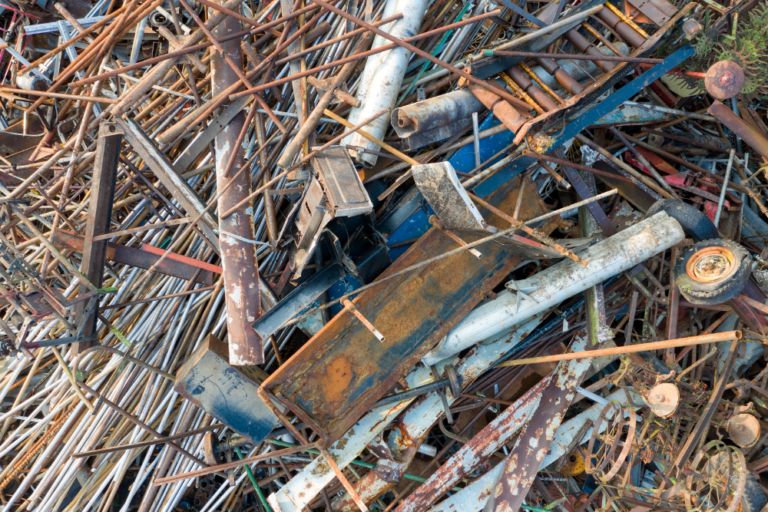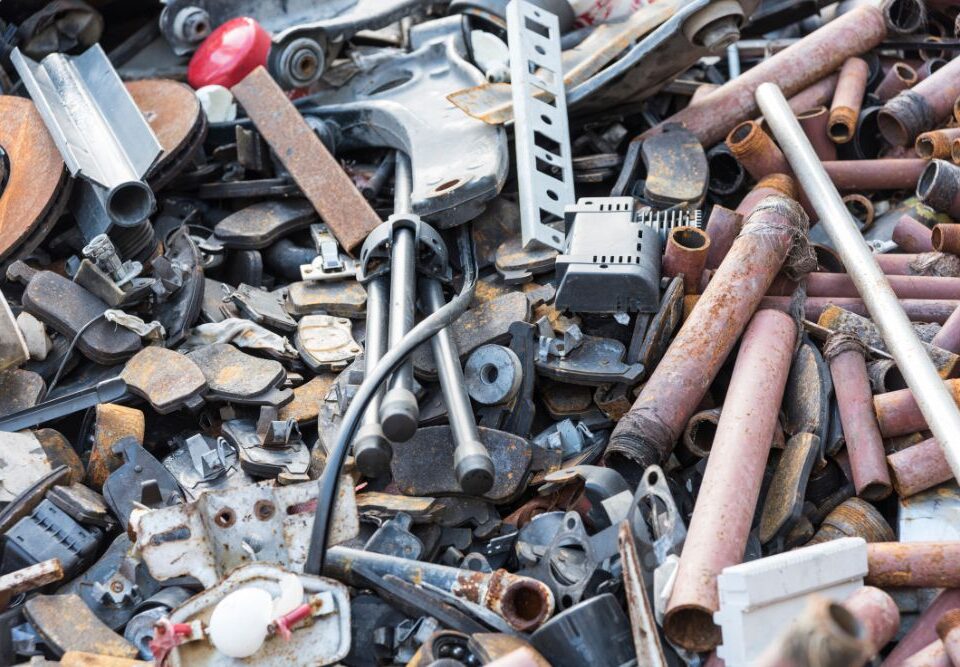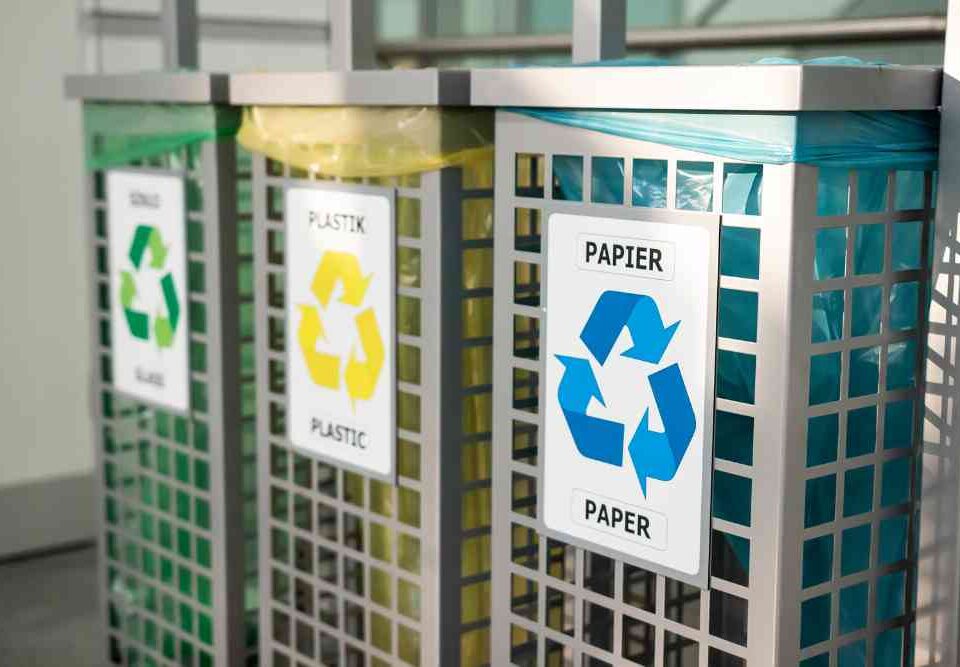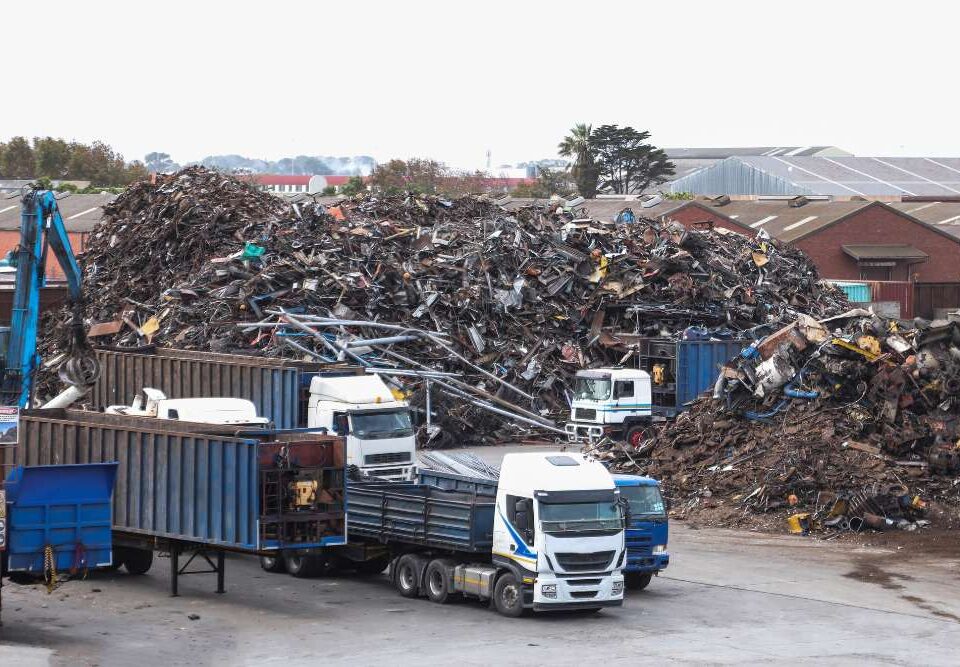
How Eco-Friendly Junk Removal Helps Keep Your Neighborhood Clean
September 15, 2025
5 Eco-Friendly Junk Disposal Tips for Homeowners
September 16, 2025How Scrap Metal Recycling Contributes to a Circular Economy
Scrap metal recycling plays a bigger role in our daily lives than most people realize. Every piece of metal that gets a second chance reduces the need for new mining, conserves natural resources, and saves vast amounts of energy. In today’s world, where sustainability has become a necessity rather than an option, recycling metals stands out as a practical solution that supports the shift toward a circular economy. Instead of treating products as disposable, this approach encourages continuous use, recovery, and reinvention of materials.
The circular economy model aims to move away from the traditional “take, make, waste” cycle by emphasizing reuse and regeneration. Scrap metal recycling is one of its strongest pillars. From old appliances and cars to construction debris and industrial leftovers, metals can be collected, processed, and reintroduced into production. This reduces environmental impact, supports industries, and builds a system where waste is no longer an inevitable outcome.
Understanding the Concept of a Circular Economy
A circular economy is based on the principle of keeping resources in use for as long as possible, extracting maximum value before recovery and regeneration. Unlike the linear economy, which relies heavily on continuous extraction and disposal, the circular model focuses on designing waste out of the system. This approach benefits businesses, communities, and the environment by shifting the focus from consumption to sustainability.
Scrap metal recycling fits perfectly into this model because metals are durable and endlessly recyclable. Every ton of steel or aluminum that gets repurposed eliminates the need for mining and smelting, both of which consume enormous amounts of energy. By recycling, industries reduce their carbon footprint while gaining reliable access to essential materials. The circular economy thrives when resources are reused, and metal recycling demonstrates how waste can be converted into opportunity without sacrificing quality or efficiency.
Why Scrap Metal Holds Endless Value
Metals are among the few materials that can be recycled repeatedly without losing their integrity. Steel, aluminum, copper, and brass retain their properties after every recycling cycle, making them uniquely suited for circular economic systems. This durability ensures that old items like car parts or construction scraps can be melted down and turned into new products with no reduction in quality.
The endless recyclability of metals makes them vital for industries that demand strength and reliability. Recycled aluminum, for example, is often used in packaging, automotive production, and even airplanes. Copper retains its conductivity, making it valuable for wiring and electronics. The economic benefits are equally strong, as recycling provides industries with affordable access to high-quality materials. By viewing scrap not as waste but as a renewable resource, societies unlock the full value of metals while reducing dependence on environmentally damaging raw extraction.
Reducing the Demand for Mining Activities
Mining for metals is one of the most resource-intensive industries on the planet. It involves land disruption, deforestation, water pollution, and significant greenhouse gas emissions. By recycling metals, we reduce the need to mine new resources, lessening the ecological footprint of production. Every ton of recycled steel, for example, saves about 1,400 pounds of coal and 2,500 pounds of iron ore.
The environmental relief provided by recycling cannot be overstated. Mining often destroys ecosystems, displaces wildlife, and leaves behind toxic residues. Recycling ensures that metals already extracted remain useful, preventing further environmental harm. Beyond ecological advantages, reducing mining activity also supports sustainability goals for businesses and governments. By prioritizing scrap metal recycling, societies move closer to balancing industrial growth with ecological preservation, proving that economic development doesn’t have to come at the expense of the planet.

Conserving Energy Through Metal Recycling
One of the most significant benefits of recycling metals is the massive reduction in energy consumption. Producing aluminum from recycled materials, for instance, requires up to 95 percent less energy compared to creating it from raw bauxite. Similar savings occur with steel and copper, making recycling not only an environmental choice but also an economic one.
Energy conservation translates into fewer greenhouse gas emissions, reduced reliance on fossil fuels, and more sustainable manufacturing cycles. These savings directly support climate change mitigation efforts while lowering production costs. For industries striving to meet sustainability targets, recycled metals provide a straightforward way to cut energy usage. By choosing recycling over new extraction, businesses can maintain material quality while contributing to a cleaner, more energy-efficient future. This alignment of ecological responsibility and cost-effectiveness underscores the power of scrap metal recycling within a circular economy.
How Recycling Supports Local Economies
Scrap metal recycling also generates significant economic opportunities. Local recycling facilities provide jobs, support small businesses, and reduce the costs associated with waste disposal. Instead of sending valuable materials to landfills, communities can reintroduce them into manufacturing systems, fueling growth and innovation.
When businesses partner with recycling services, they help create supply chains that benefit both industry and community. The process stimulates local economies by keeping resources in circulation and reducing reliance on imports. Scrap metal recycling is not just an environmental practice; it is also a driver of economic resilience. By turning discarded metals into valuable inputs, communities foster self-sufficiency and support long-term growth. The economic ripple effect underscores how recycling contributes to sustainable prosperity while aligning with the larger goals of a circular economy.
Recycling and the Reduction of Landfill Waste
Landfills continue to overflow with materials that could have been recycled. Scrap metal is particularly problematic because it takes centuries to degrade, occupying space that could be better managed. Recycling eliminates this issue by diverting metals away from landfills and back into production cycles.
By reducing landfill waste, recycling helps alleviate environmental hazards such as soil contamination and groundwater pollution. Landfills also produce methane, a potent greenhouse gas, when organic waste decomposes. By lessening the burden of metals in these sites, recycling helps create safer, more sustainable waste management systems. The diversion of scrap metals away from landfills represents a critical step in building cleaner communities. It ensures that waste is minimized, resources are preserved, and the environment remains protected for future generations.
Encouraging Innovation in Manufacturing
Scrap metal recycling fuels innovation by providing industries with opportunities to develop new products and manufacturing processes. Recycled metals often inspire creative applications, from sustainable packaging to energy-efficient vehicles. Manufacturers that incorporate recycled materials can market themselves as environmentally responsible while meeting consumer demand for eco-friendly goods.
The availability of recycled metals also reduces costs, encouraging companies to experiment with design and production. In a circular economy, innovation thrives on the ability to do more with less, and recycling creates the foundation for this progress. As industries continue to push for greener practices, recycled metals will remain central to technological advancement. By supporting innovation, scrap recycling drives not only sustainability but also competitiveness, proving that environmental responsibility can coexist with cutting-edge development.
The Role of Businesses in Metal Recycling
Businesses are key players in advancing scrap metal recycling. From construction firms to manufacturers, companies generate significant quantities of metal waste. By adopting responsible recycling practices, they reduce costs, conserve resources, and align with consumer expectations for sustainability. Businesses can also strengthen their reputation by demonstrating commitment to eco-friendly operations.
Commercial recycling programs often involve partnerships with professional junk removal and recycling services. These collaborations make it easier for companies to manage their scrap responsibly, ensuring compliance with environmental regulations. The role of businesses goes beyond compliance—it sets industry standards and inspires competitors to follow suit. By integrating scrap recycling into operations, businesses become active contributors to the circular economy while reaping both financial and reputational benefits.
Building a Sustainable Future Through Metal Recycling
The long-term impact of scrap metal recycling extends far beyond immediate savings. By conserving resources, reducing waste, and minimizing environmental damage, recycling supports the foundation of a sustainable future. Each piece of metal that reenters production reinforces the circular economy’s vision of continuous resource use.
This future depends on collective participation. Households, businesses, and industries all play a role in ensuring metals are recycled effectively. The broader the adoption, the stronger the circular economy becomes. Scrap metal recycling is more than a practical solution—it is a philosophy that prioritizes longevity over disposability. By committing to this approach, communities take a significant step toward sustainability, creating systems that protect the planet while supporting human progress.
Conclusion
Scrap metal recycling is a powerful contributor to the circular economy, offering benefits that span environmental protection, energy savings, and economic growth. Unlike other materials, metals can be recycled indefinitely without losing quality, making them ideal for continuous reuse. Recycling reduces mining activity, conserves energy, lowers landfill waste, and encourages innovation in manufacturing. For businesses and households alike, choosing to recycle scrap metal reflects both responsibility and foresight.
For those in Santa Rosa and the North Bay area seeking professional assistance, North Bay Junk Removal provides reliable junk removal services designed with sustainability in mind. Their team specializes in recycling, donation, and responsible disposal, ensuring that scrap metals and other materials are handled with care. By partnering with North Bay Junk Removal, you can clear space while contributing to a healthier planet. To schedule services, call 707-478-6817 and take a step toward responsible junk removal that benefits both your community and the environment.




